Iranian president says will ‘personally’ oversee expansion of relations between Iran and China
Iran’s President Masoud Pezeshkian says he will “personally” oversee the expansion of relations between the Islamic Republic and China, stressing that mutual trust is built through joint actions and projects.
Pezeshkian made the remarks during a meeting with his Chinese counterpart Xi Jinping on the sidelines of the 16th BRICS summit in the Russian city of Kazan on Thursday.
“Our relations must be pursued based on a program with a clear framework and timeline within the Joint Economic Cooperation Commission, aimed at a win-win outcome. This form of interaction will lead to a deepening of relations,” Pezeshkian said.
He emphasized that China is a close ally of Iran and its most significant trading partner.
“We believe that together we can stand against the hegemony of Western countries. I personally oversee the expansion of relations with China and assist my colleagues in overcoming potential obstacles to enhancing and advancing our cooperation,” Pezeshkian stressed.
Elsewhere in his remarks, Pezeshkian noted that what threatens peace in our region today is the unconditional support of the United States and some Western countries for the Zionist regime.
He stressed that the Zionist regime has crossed all red lines and, by killing innocent civilians, has proven that it adheres to no human or legal principles.
“The Islamic Republic of Iran, despite having the legitimate right to defend itself against violations of national sovereignty and the assassination of its official guest in Tehran by the Zionist regime, chose to forgo this right in favor of peace in the region and the establishment of a ceasefire in Gaza.
"However, we have seen that instead of pursuing peace and a ceasefire, the Zionists have become more emboldened in their crimes, even extending their crimes to Lebanon,” Pezeshkian further said.
The Israeli regime assassinated Ismail Haniyeh, chief of the Palestinian Hamas resistance movement, in the Iranian capital Tehran early on July 31, hours after he participated in the swearing-in- ceremony of Pezeshkian.
The Iranian president emphasized that the Islamic Republic does not view war as beneficial for anyone and therefore is not seeking conflict.
“However, if anyone attempts to assault or invade Iran, they will receive a strong and decisive response,” Pezeshkian warned.
On October 1, the Islamic Revolution Guards Corps (IRGC) launched hundreds of supersonic ballistic missiles toward the Israeli entity’s military, espionage and intelligence bases all over the occupied territories, inflicting damage on them.
The operation - dubbed Operation True Promise II - came in response to the regime’s assassinations of Haniyeh in Tehran, Hezbollah’s leader Sayyed Hassan Nasrallah, and Nilforoushan, an IRGC military advisory, in Lebanon.
Earlier this month, the chief commander of the IRGC Major General Hossein Salami said that Operation True Promise II served just as a warning to Israel, stressing that it was only a small part of Iran’s power.
The Chinese president, for his part, expressed readiness to deepen relations with Iran, emphasizing the importance of strengthening mutual trust.
“Friendly relations with Iran are valuable to China. We are ready to defend the shared interests of both countries. This is our first meeting and I believe that we can expand cooperation and mutual relations,” Xi said.
He also expressed gratitude for the constructive interactions between the two countries in regional and international arenas.
“Iran and China can also cooperate beneficially in various areas, including governance, economic, cultural, and military issues. In this regard, I announce that arrangements have been made to initiate a new phase of cooperation between the two countries,” the Chinese president noted.
Elsewhere in his remarks, Xi described the current conditions and rising tensions in the region as very concerning, stressing that the key to reducing tension is the immediate establishment of a ceasefire.
“We believe that our Iranian friends will take appropriate measures to create peace and stability in the region. We must prevent the escalation of conflicts in the region,” he added.
The BRICS group of fast-developing economies initially consisted of Brazil, Russia, India, China, and South Africa.
This year, it expanded to include Iran, Egypt, the UAE and Ethiopia as new members.
The group promotes a multipolar world order and is often seen as an alternative to Western economic and political hegemony. It comprises almost 46 percent of the global population, 36 percent of the world’s gross domestic product (GDP) and 25 percent of the global trade measured in terms of exports.
UK ordered in 'milestone' court ruling to pay $570 million for colonial-era massacre
VIDEO | Defying the rubble, Gaza opens its first face-to-face school since start of war
‘Ready for next round’: Million-man rally in Yemen backs Gaza, resistance
FM Araghchi departs Muscat for Doha following nuclear talks with US
Israeli keeps killing more Palestinian civilians in Gaza amid relentless ceasefire violations
Aliyev: Azerbaijani territory will not be used for threats against Iran
Turkey arrests two on charges of spying for Israeli regime
Iran FM declares ‘good start’ as US–Iran talks conclude in Muscat


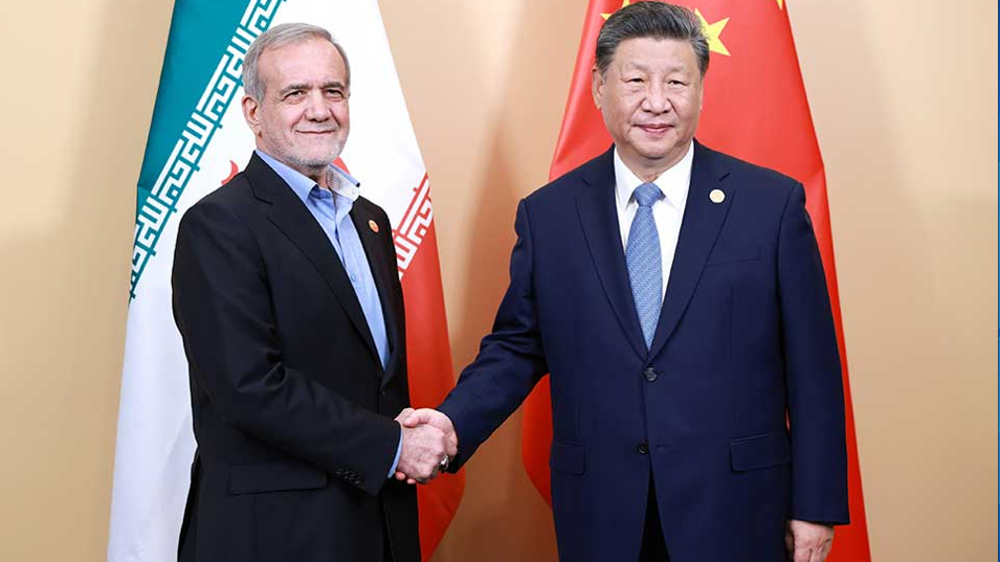
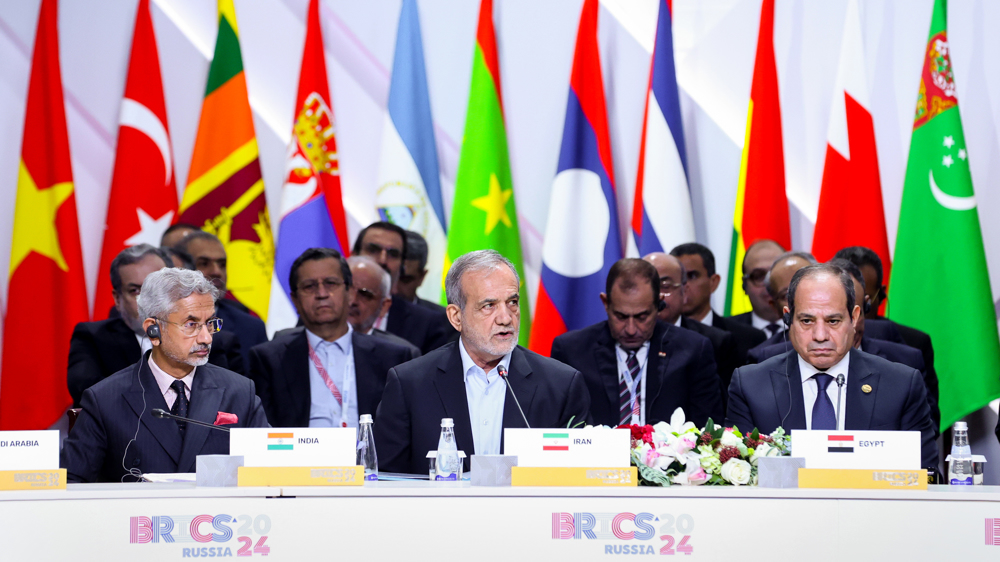
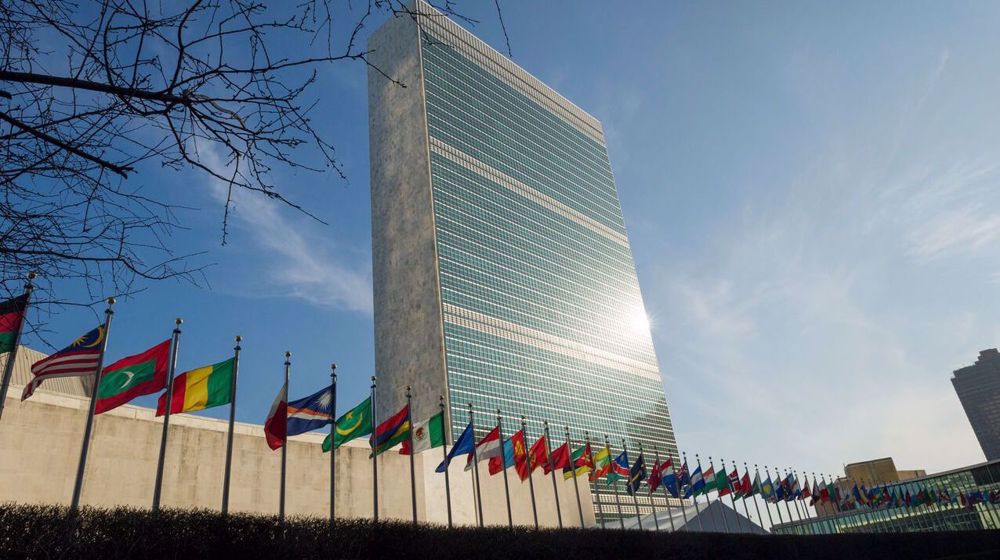
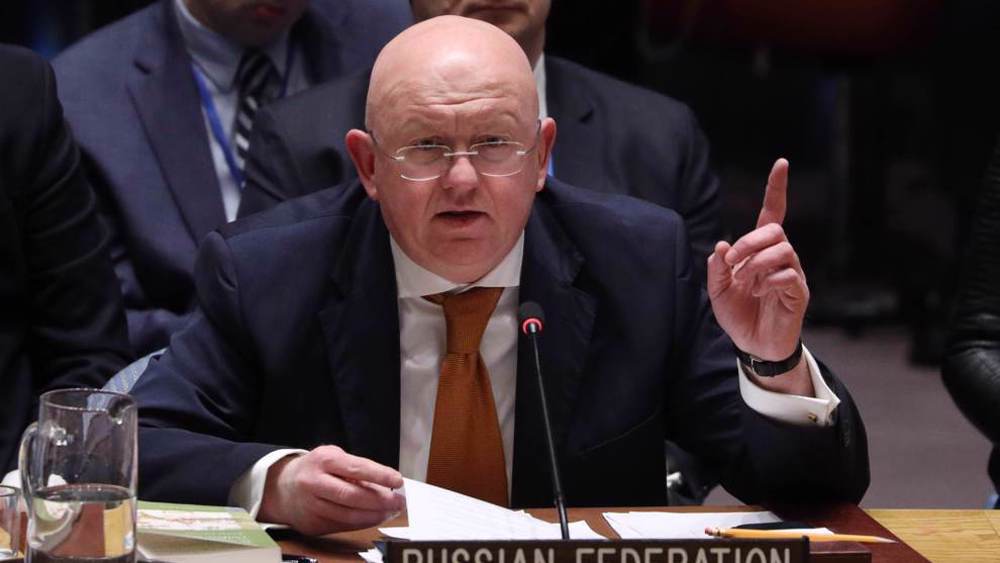
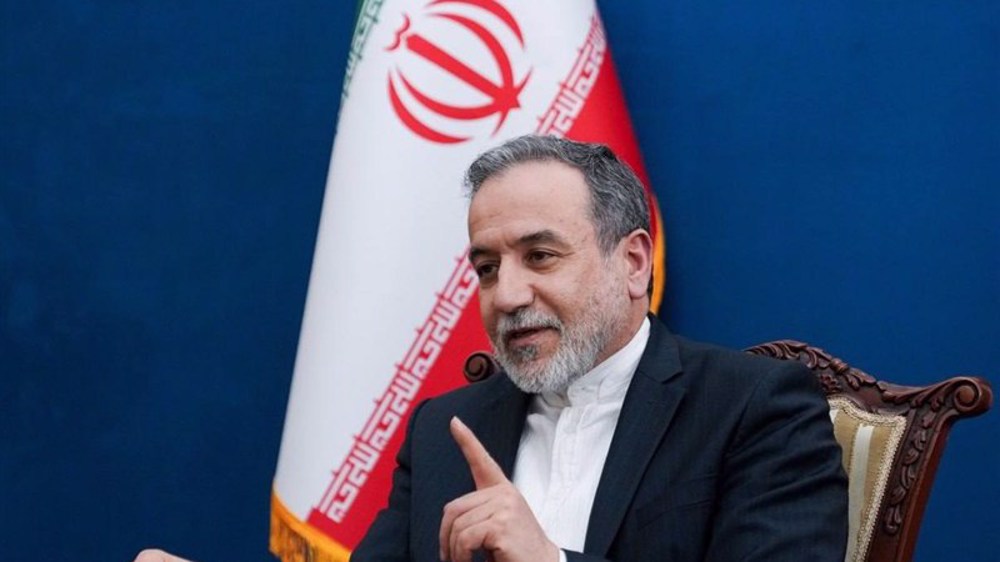




 This makes it easy to access the Press TV website
This makes it easy to access the Press TV website